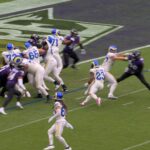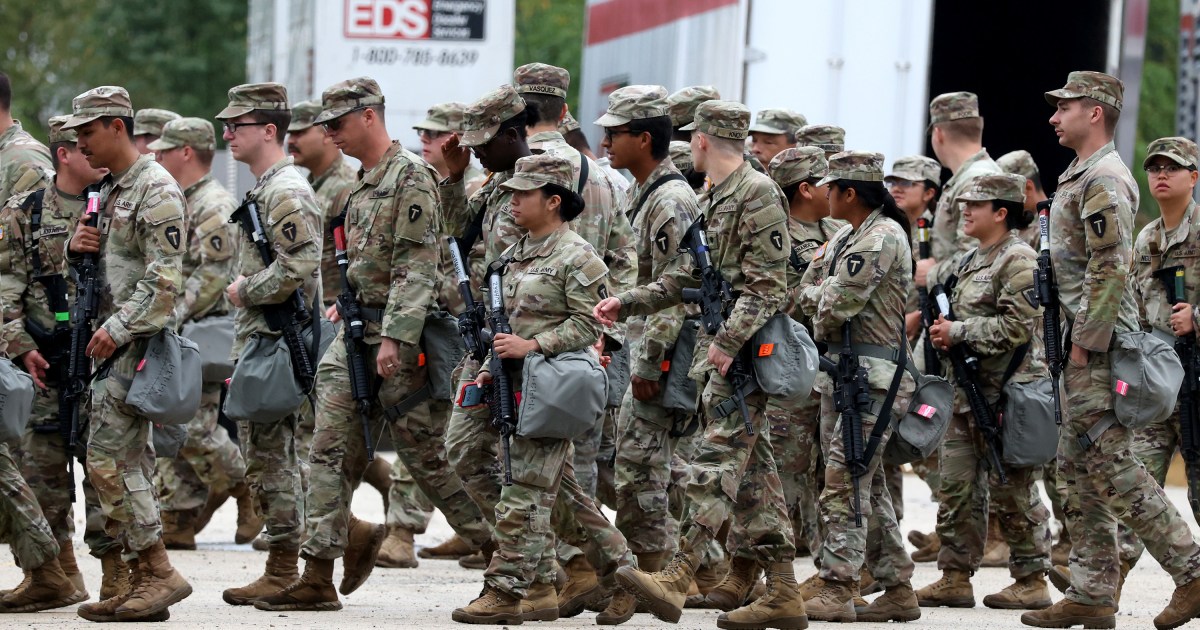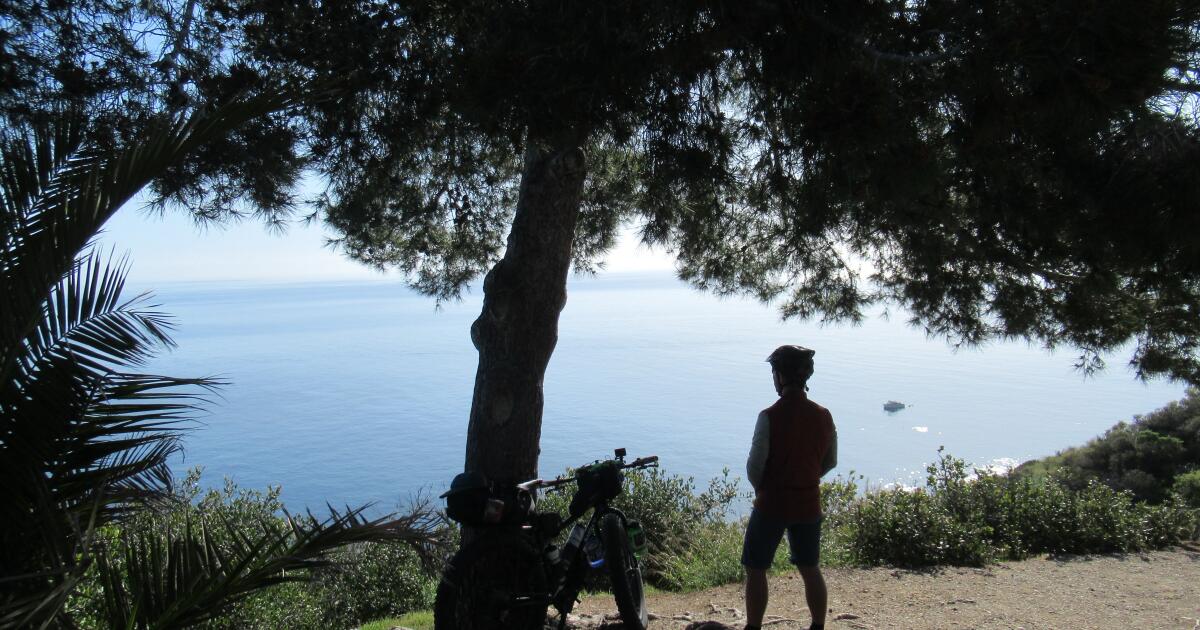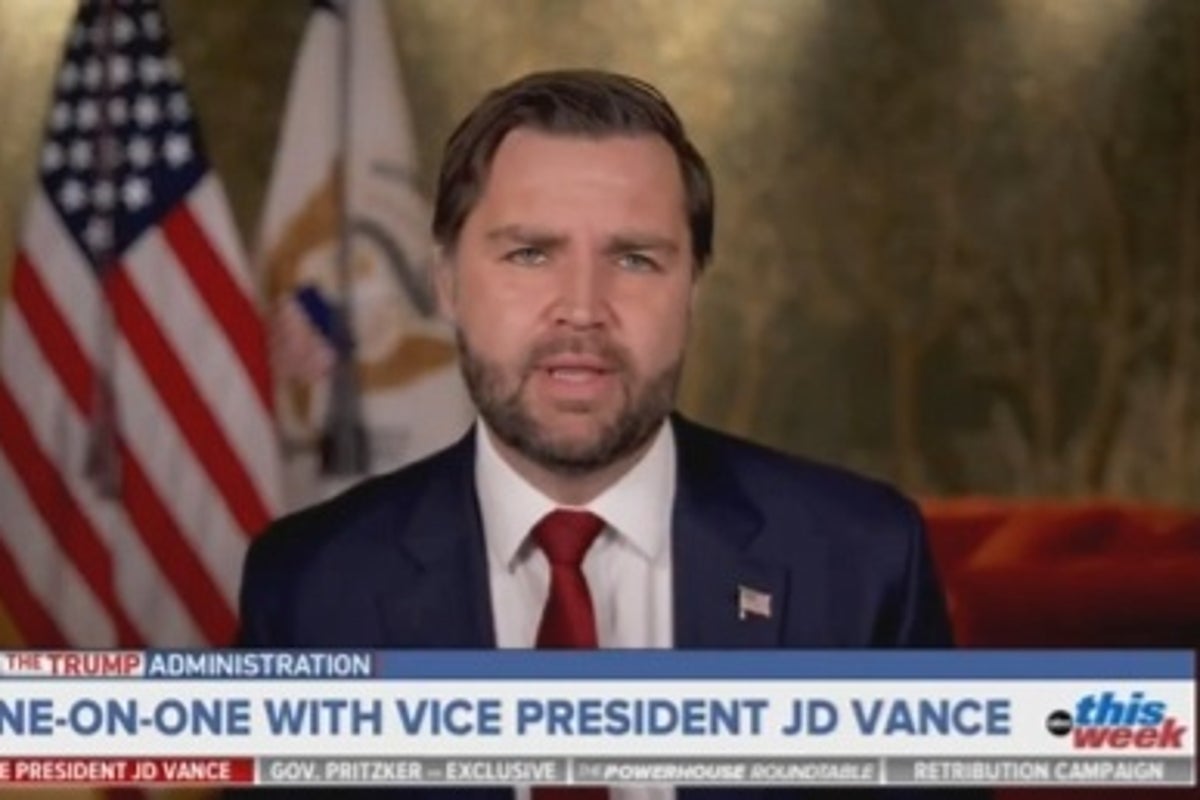The Trump administration has suffered yet another in its series of recent legal losses—this time over its attempt to deploy National Guard troops in Illinois.
On Monday, state and local officials filed a lawsuit over federal officials’ attempt to take over and deploy National Guard troops in Illinois, alleging the move was “unlawful and dangerous.” The Department of Homeland Security (DHS) had said it was deploying the troops to support Immigration and Customs Enforcement (ICE) agents, who have been carrying out what the agency calls “Operation Midway Blitz,” an enforcement effort that DHS says has led to more than 1,000 arrests. As my colleague Samantha Michaels and I have covered, the increased presence of ICE agents in the city has led to allegations that they are racially profiling residents, arresting Black and brown US citizens and using excessive force, particularly tear gas, to deter protesters and journalists outside a Chicago-area ICE facility.
In only six days since the suit was filed, federal officials have suffered a series of blows in the case. On Thursday, federal District Judge April Perry temporarily blocked federal officials’ moves to take over and deploy the troops. The Trump administration immediately appealed the decision, and on Saturday, an appeals court ruled that although the Trump administration could temporarily keep the Illinois and Texas National Guard troops under its control, it could not deploy them in the streets.
State officials characterized the recent rulings as wins: Illinois Attorney General Kwame Raoul called the Thursday ruling a “victory for our state…[and] for state and local law enforcement—who know their communities and who protect the right of their communities to speak truth to power.” The ACLU of Illinois also said in a statement that it applauded the decision. Mayor Johnson also called the ruling “a win for the people of Chicago and the rule of law,” adding, “Judge Perry echoed many of the points that we have made repeatedly: Trump’s deployment is illegal, unconstitutional, dangerous, and unnecessary. There is no rebellion in Chicago. There are just good people standing up for what is right.” Spokespeople for the White House and DHS did not respond to requests for comment on the rulings.
Illinois Governor JB Pritzker, a Democrat, said on ABC’s This Week on Sunday, “We hope to continue to win. We’ve got to rely on the courts to do the right thing.”
Meanwhile, Vice President JD Vance said on This Week that the administration plans to fight the rulings. When host George Stephanopoulos repeatedly asked Vance whether he agreed with Trump’s incendiary—and baseless—claim from earlier this week that both Pritzker and Chicago Mayor Brandon Johnson should be jailed, the vice president refused to answer directly, saying only that Pritzker “absolutely should suffer some consequence for the fact that there are thousands of innocent Chicagoans who are dead because he failed to do his job.” He later said he believes a judge and jury should decide whether Pritzker actually committed a crime.
In his tour of the Sunday shows, Vance told host Kristen Welker, moderator of NBC’s Meet the Press, that the president was not ruling out invoking the Insurrection Act, an 18th-century law that allows the president to deploy the US military within the country to “suppress rebellion.” Trump has repeatedly floated invoking the act, including this week, when he told reporters he would consider it “if it was necessary.”
“The president’s looking at all of his options,” Vance told Welker. “Right now, he hasn’t felt he needed to.”
Back on ABC, Pritzker told Stephanopoulos: “If the Constitution means anything, the Insurrection Act cannot be invoked to send [troops] in because they want to fight crime.”














